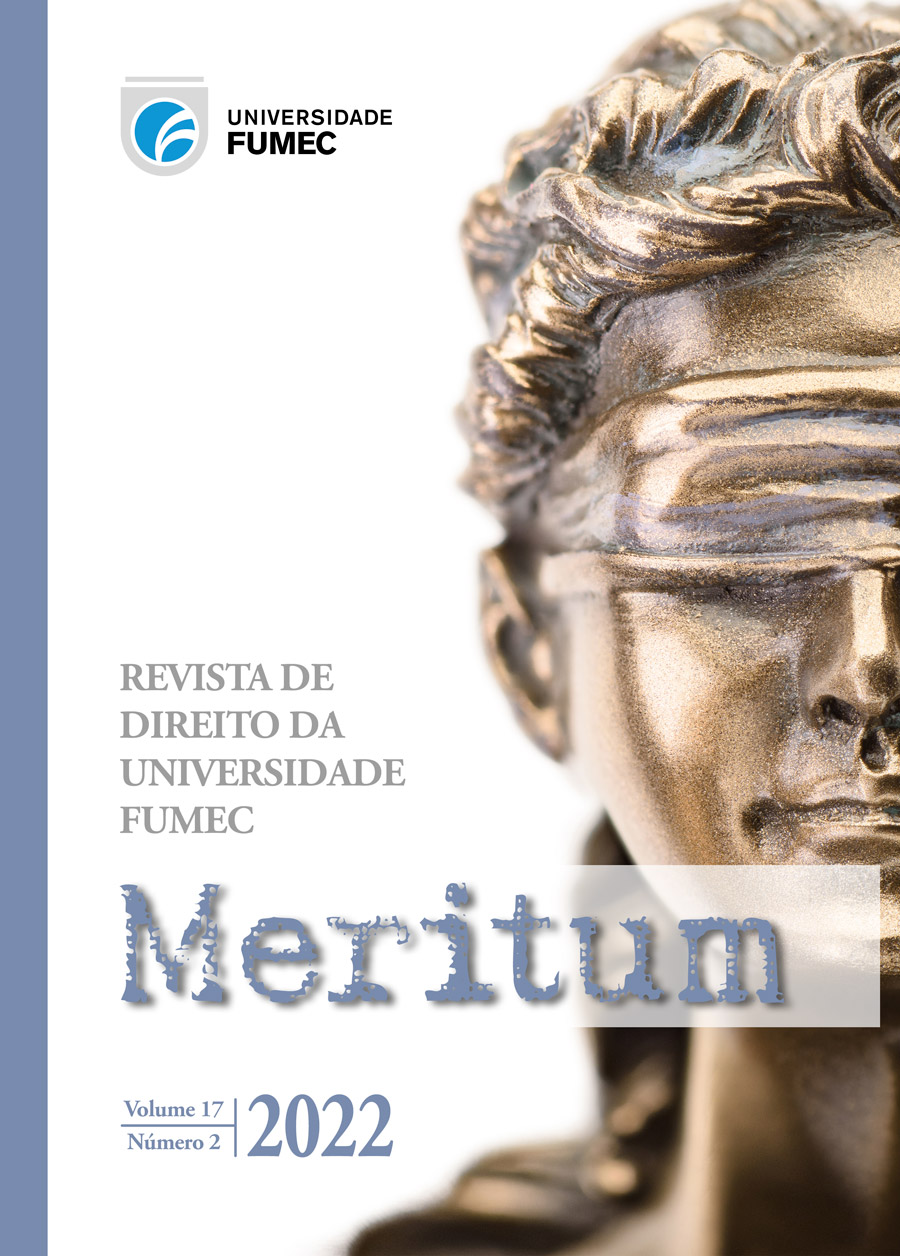A EDUCAÇÃO EM DIREITOS HUMANOS COMO MEIO DE CONSTRUÇÃO DE UMA SOCIEDADE ABERTA DE INTÉRPRETES DA CONSTITUIÇÃO
DOI:
https://doi.org/10.46560/meritum.v17i2.8994Abstract
This article has as its object the education in human rights and aims to present and analyze how this object presents itself as a mechanism for opening up the constitutional interpretation. The work starts from a literature review on education and human rights, making an approximation between these two categories, then makes a documental analysis of the regulatory frameworks on the subject and, finally, discusses the theory of the open society of interpreters of the Constitution, Peter Häberle, who included the actors in the educational field as legitimate to interpret the Constitution. From the analysis, it was noticed that an education focused on human rights is one that aims at pedagogical processes that collaborate in the development of the emancipated and critical human personality, having as a horizon the construction of a participatory citizenship. It was observed that international and national regulatory frameworks enshrine the existence of a fundamental right to be educated in human rights. Finally, it was verified that the proposal of an education in human rights is exactly the proposal of the hermeneutics and the experience of human rights in the educational space, through a pedagogy of the Constitution.
Keywords: Human Rights Education; Open Society of Interpreters; Constitutional Hermeneutics; Citizen Education; Democratic Education.
Downloads
Published
Issue
Section
License
Autores que publicam nesta revista concordam com os seguintes termos:
- Autores mantém os direitos autorais e concedem à revista o direito de primeira publicação, com o trabalho simultaneamente licenciado sob a Licença Creative Commons Attribution que permite o compartilhamento do trabalho com reconhecimento da autoria e publicação inicial nesta revista;
- Autores têm autorização para assumir contratos adicionais separadamente, para distribuição não-exclusiva da versão do trabalho publicada nesta revista (ex.: publicar em repositório institucional ou como capítulo de livro), com reconhecimento de autoria e publicação inicial nesta revista;
- Autores têm permissão e são estimulados a publicar e distribuir seu trabalho online (ex.: em repositórios institucionais ou na sua página pessoal) a qualquer ponto antes ou durante o processo editorial, já que isso pode gerar alterações produtivas, bem como aumentar o impacto e a citação do trabalho publicado (Veja O Efeito do Acesso Livre).






